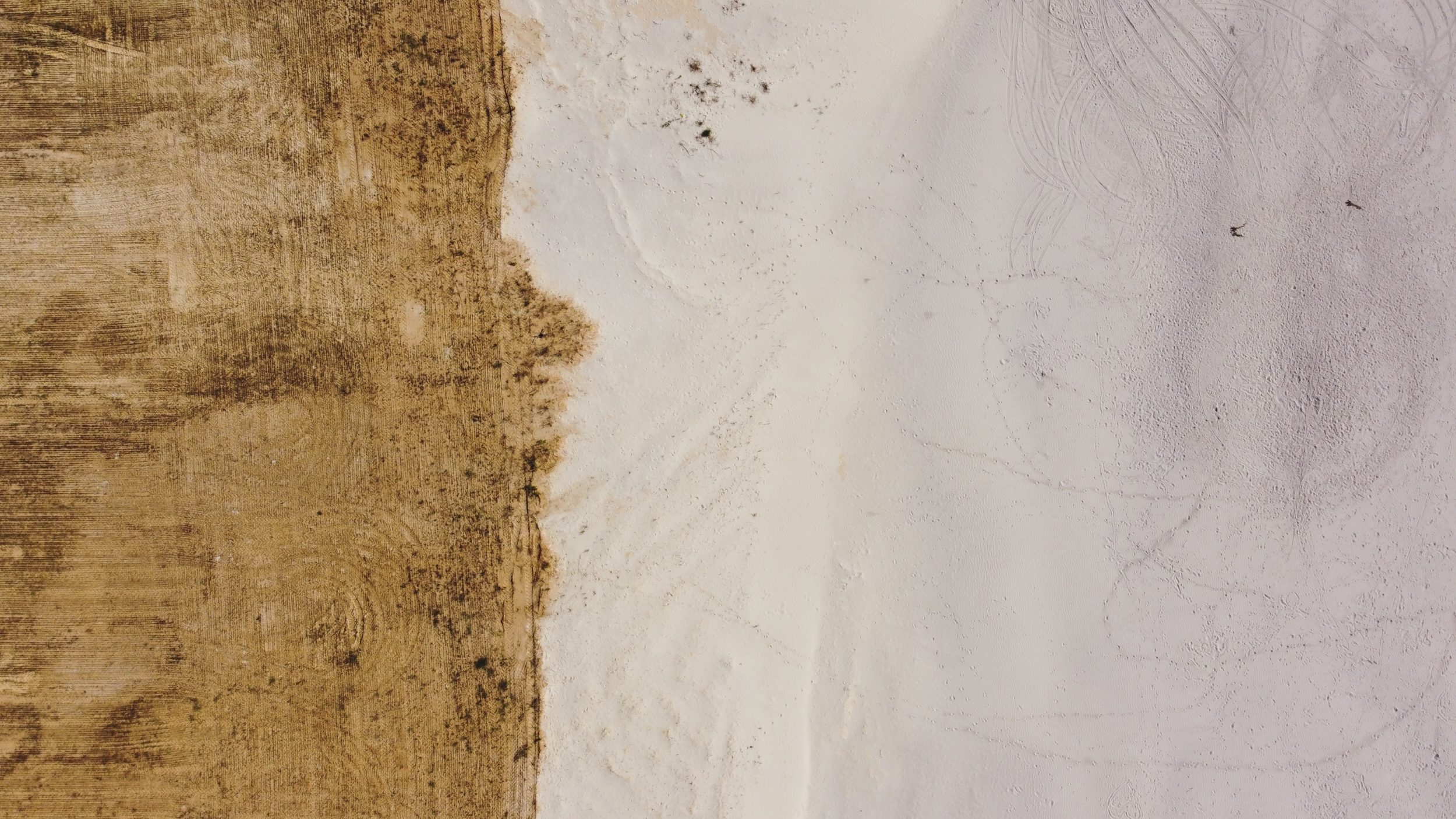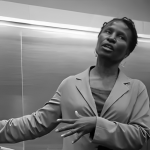In the first in this set of paired essays, published earlier in the week, we explored how the Atlanta Police Foundation (APF)—a private, militarized policy offshoot of the Atlanta Police Department (APD) working in collaboration with corporate interests, clergy, and Atlanta City Hall—is forcing the Cop City complex onto Atlanta despite widespread opposition.
What is happening in Georgia right now, however, is not restricted to Atlanta and APF. No one fully has a clear sight of the puppet masters’ hands and the manipulation of governance. Still, federal police have a significant impact throughout the country. In July 2022 the FBI raided the St. Louis and St. Petersburg headquarters of Uhuru House, part of the African People’s Socialist Party, with weapons drawn, and confiscated files. The raids were conducted supposedly to investigate Russian election interference. But the African People’s Socialist Party, which provides food and material support for under-resourced organizations, has noted how the FBI’s use of the Foreign Agents Registration Act (FARA) is continuous with its long history of violent policing against environmentalists at the behest of corporations. The FBI appears to maintain a similar appetite to that wielded by J. Edgar Hoover under the COINTELPRO program which, with lethal efficiency, sabotaged Black radical organizing.
What we are witnessing is the logic of colonialism practiced domestically. Colonialism is a contemporary threat to the stability of cities (and countries) facing attempts by corporations and governments to violate the rights of working-class and low-income communities, most often Black and brown. Addressing the complexity or puzzle of Cop City means acknowledging the historical trajectory of militarized violence, corporate dominance, and political corruption that preceded the present crisis.
Paramilitary and mercenary foreign policy strategies seep into domestic policing. Six decades ago, Democratic and Republican administrations were both equally funding white mercenaries and paramilitary policing to destabilize African freedom movements. In 1964 President Lyndon Johnson authorized the Department of Defense to provide material support toward the effort of undermining and killing African liberation leaders and intellectuals. This racial terrorism in U.S. foreign policy was conterminous with domestic policy. Despite the terror, Black agency continued to resist violence and dishonor.
In the summer of 1964, Johnson met with the parents of slain white civil rights activists Andrew Goodman and Michael Schwerner, but seemingly not with the parents of James Chaney, a Black Mississippi CORE organizer. That June, assisted by a sheriff’s deputy, Klansmen had assassinated the three civil rights workers in Mississippi and buried the bodies in a dam. Johnson called upon J. Edgar Hoover to solve the crime. The corpses were found on August 4, 1964, when President Johnson was campaigning for the presidency and attempting to appease various political factions. During the search for the bodies of the civil rights activists, rivers were dragged and eight corpses of Black males discovered, including two nineteen-year-olds and one fourteen-year-old who was wearing a Congress of Racial Equality (CORE) T-shirt. On August 3, 1980, one day short of the sixteenth anniversary of the recovery of the bodies of the murdered civil rights activists, Republican presidential candidate Ronald Reagan, staging his campaign near Philadelphia, Mississippi, a ten-minute drive from the dam where the three organizers had been buried, stood at the podium demanding “state’s rights.”
More from our decarceral brainstorm
Every week, Inquest aims to bring you insights from people thinking through and working for a world without mass incarceration.
Sign up for our newsletter for the latest.
Newsletter
History is instructive. Atlanta’s brutalities and tragedies are not unique. Cop City’s current paramilitary violence—from city police, state troopers, and the FBI—mirrors the lethal policies of the past where vigilante and police terror, opportunist politicians, and state criminality converged. Without the formal endorsement of (white) nationalist presidential candidates such as Donald Trump and Ron DeSantis, Black compradors have worked in and beyond Atlanta to obscure the legacies of Martin Luther King, Jr., el-Hajj Malik el-Shabazz (Malcolm X), Fannie Lou Hamer, Rosa Parks, and Ella Baker. Investment portfolios incentivized by corporations and foundations seek to decimate the civil rights of working-class and poor communities deemed exploitable and expendable, particularly if they are Black. From city councils to mayors, through governors, Congress, and the White House, intimidation and terror tactics appear to be implicitly (by Democrats) and explicitly (by Republicans) approved in standard governance for the control of Black cities and communities.
APF is only one organization within a larger nexus of “public–private” partnerships attempting to shape Atlanta’s public safety policies. Headquartered inside the Andrew Young School of Policy Studies at Georgia State University, the Georgia International Law Enforcement Exchange (GILEE) has been in partnership with the university, Atlanta Police Department (as well as various other police agencies), public and corporate sectors, and civic groups since its inception thirty years ago. Among its activities, GILEE organizes a police exchange program that provides U.S. law enforcement with special training from Israeli Police. Aside from hosting Atlanta police, the Jerusalem Post reports that “Israel . . . has hosted over 1,200 public safety officials since the start of the program.” A least twenty-nine U.S. delegations of law enforcement have traveled to Jerusalem to participate in “intensive two-week training programs,” including many from the Atlanta area.
Why would Atlanta, a city that many view as the “civil rights capitol,” look to Israel for local police training—and what does this training even consist of?
In 2019 the United Nations Human Rights Council released a twenty-two-page report stating, according to the New York Times, that “Israeli troops may have committed crimes against humanity in shooting unarmed civilians—including children—who posed no threat during mass protests.” Israeli military and police forces have been guilty of the illegal occupation of Palestine for the last fifty-six years—making it, according to law scholar Valentina Azarova, the longest occupation in modern history. They have a well-documented track record of human rights abuses. Yet for the past three decades the Atlanta Police Department, as well as various state and local officials, have through GILEE turned to these same actors to train law enforcement in military tactics in Georgia.
GILEE donations, channeled through Georgia State University and government funding, are more opaque than APF resources. We know, though, that APF is supported by major corporations such as Cox Media Group, Coca Cola, Wells Fargo, Delta, and Home Depot. A host of other multinational corporations maintain a significant influence in and beyond Atlanta by funneling private funding into police foundations. Deploying similar tactics across the globe, U.S. corporations have facilitated coups and assassinations of labor, environmental, and human rights organizers in Haiti, Guatemala, Nicaragua, and many other nations. In its refusal to hear an impassioned citizenry argue and plead against a militarized zone, Atlanta remains loyal to the trajectory of colonial cities despite the rising costs and violence against civilians.
A member of Atlanta’s Faith Coalition to Stop Cop City, Reverend Keyanna Jones has family that lives in the Black neighborhood targeted for gentrification and militarization through Cop City. In her activism against the police training complex, Rev. Jones brings attention to the betrayals of Black mayors and the predominately Black city council. Jones and other activists have drawn attention to the fact that plans for Cop City include a “mock village” in which police will practice urban warfare tactics. Contributors to educational platforms such as Scalawag help keep the public informed on strategic opposition to state warfare.
Rev. Jones anticipates that Cop City will be used for police training in “MOUT” tactics. MOUT is a genre of military-developed urban warfare strategies—for example, as described in the Marines-developed training handbook Military Operations on Urban Terrain (MOUT). The manual focuses on “military operations on urbanized terrain” (i.e., urban warfare), with diagrams illustrating military operations in commercial and residential areas that would be perfectly at home in Atlanta. Indeed, an Army report from the early 1980s says that researchers developing MOUT techniques used the city of Atlanta as a basis for their research. Under the rubric of MOUT, protests against police violence, redistricting, poverty, and hunger become criminalized. Essentially communal advocacy and protests for civil and human rights are treated as acts of terrorism. This is the Atlanta (and international) playbook to colonize a city. In its effort to suppress dissent against Cop City, the majority of Atlanta’s city government has criminalized people who want to grow flowers and food, and attend music festivals and, while there, show solidarity with forest protectors without being arrested on “terrorist” charges.
The U.S. military has practiced some version of MOUT across the globe for decades. Combat training seeks to colonize your local city. Primary targets of the domestic deployment of MOUT will be Black folks, BIPOC, and working-class and low-income communities. Some argue that the “asymmetric enemy” will look like the “Chocolate City” or “Black Mecca” and thus we should expect some version of Detroit 1967 in the future. State violence continues despite the fact that it would be simpler, safer, and more orderly to provide healthy jobs, food, housing, schooling, and green spaces to communities. Progressives’ and abolitionists’ unpreparedness for repressive mandates to construct and control “internal colonies” indicates that this ongoing struggle has been shortsightedly portrayed as a local, urban issue.
Speaking about Atlanta during a June 9, 2023, Black Power Media (BPM) podcast, this essay’s coauthor Kalonji Changa reflected upon the trajectory of escalating state violence and police as executioners:
The arrogant and desperate attempt to terrorize and crush the morale of activists five days before the Atlanta City Council’s vote on funding the corporate-sponsored paramilitary training ground is utterly repulsive. The trumped-up charges used to criminalize and vilify the Atlanta Solidarity Fund’s legitimate activists, including Marlon Kautz, and Adele MacLean—both of whom I have known and organized with for well over a decade—is proof that these warmongers will pull out all stops to achieve their goals. The police and the media have unsuccessfully tried to paint Marlon and Adele as opportunists or “agitators” when in fact they are seasoned organizers who have a long history of organizing in the Atlanta community. As part of their Cop Watch program, they worked alongside our organization, The FTP Movement, and many other organizations working on numerous campaigns, including the case of Troy Anthony Davis who was executed in September 2011 despite global demands for a stay due to his innocence. The state’s blatant disregard for community will be their ultimate demise. You cannot attack community organizers in front of the world and think that it will be an easy victory.
Cop City’s architects have blood on their hands for the murder of Tortuguita. The government and police should be charged not only with his assassination, but also the numerous false arrests, bullying, scare tactics, and the strong-armed robbery of taxpayers who are supposed to provide the tens of millions to fund a colonial project. The APF, corporate donors, and indifferent Georgia politicians are the true domestic terrorists.
Activists warn that a militarized police training center will disenfranchise a Black working-class community as the state and corporations wage a lethal war against communities and civilians. The only people killed or tortured in Atlanta were those assaulted by police. Communities deploy various strategies in war resistance. Anti-colonial battles are continuous and require constant vigilance. Less than a two-hour drive from Atlanta, at Fort Benning, another deadly entity with a benign name—the School of the Americas (SOA), also known as the “School of the Assassins”—was shut down by ethical organizers in 2000. Yet the former SOA was rebranded as the Western Hemisphere Institute for Security Cooperation, which reportedly continues to offer SOA’s curriculum of torture, assassinations, and human rights violations. Still, mass gatherings of diverse and principled individuals and communities continue to resist death and gentrification structured by communal dispossession, predatory policing, and state criminality from New York to Nanterre. History remains instructive. In 1972, only a few months before his assassination in Guinea by forces supporting colonialism, African liberator Amílcar Cabral spoke with New York City organizers (his speech is preserved in Return to the Source), instructing and offering international solidarity in anti-colonial war resistance:
We realize the difficulties you face, the problems you have and your feelings, your revolts, and also your hopes. We think that our fighting for Africa against colonialism and imperialism is a proof of understanding of your problem and also a contribution for the solution of your problems in this continent. Naturally, the inverse is also true.
Editor’s Note: This essay and its first part mark the end of the authors’ four-part series Abolition Alchemy. Changa and James continue this discussion on YouTube with a new video, Resisting Cop City Corporate and Clergy Colonizers, which they recorded for Black Power Media to accompany their Inquest article.


